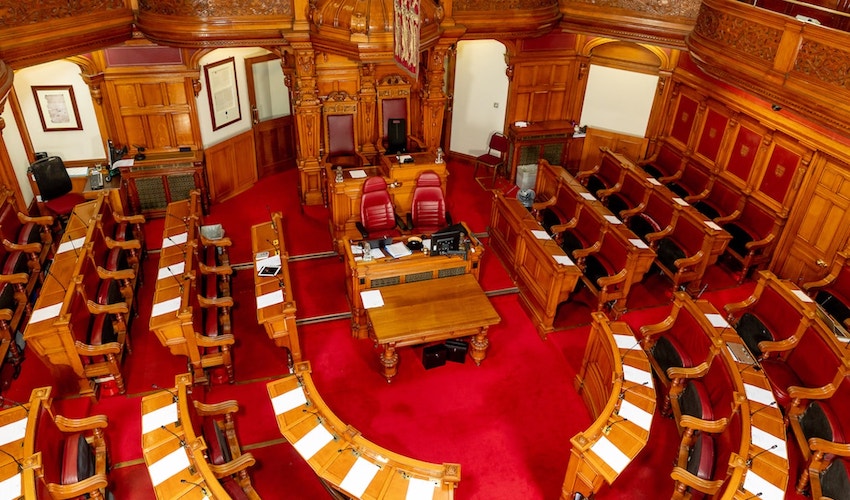


After Deputy Russell Labey recently informed the States Assembly he had been "sitting in Senator Farnham’s kitchen", a member of public queried his statement in the context of covid restrictions. The Deputy revealed he had been "speaking figuratively."
The Deputy was Chairman of the Privilege and Procedures Committee (PPC) at the time. The PPC is responsible for the Code of Conduct of States Members. The Code does not prevent unusual expressions being used in the States Assembly, even if they distort the truth.
Writers of fiction and journalists use figurative language too. They also need to be mindful of the laws of libel. The English Law Society strives for verbal accuracy amongst its members to the extent of warning solicitors off making statements that can turn out to be false. The main objective of its Code of Conduct is to ensure its members can be trusted.
In 2019, Statistics Jersey found the States Assembly was least trusted out of a number of Jersey institutions, including the local media and the courts.
The PPC’s published minutes do not refer to the report. While seeking to remedy low voter turnout through an increase in the number of Deputies (who already outnumbered other States Members in both the PPC and the States Assembly), the minutes do not show if the PPC paused to question if absence of trust contributed to voter apathy.

Pictured: "Freedom of speech in the States Chamber is considered so sacred that States Members can lie or defame people during States Assembly proceedings without legal consequences."
The Code of Conduct of States Members explains their duty of ‘honesty’ as one of declaring and resolving conflicts of interest. This hardly matches public understanding of honesty. The UK Cabinet’s Ministerial Code differs in stating "holders of public office should be truthful".
Regardless of what is in the Code of Conduct of States Members, freedom of speech in the States Chamber is considered so sacred that States Members can lie or defame people during States Assembly proceedings without legal consequences. This constitutional principle is based on a Cromwellian ‘acceptance’ that parliament must enjoy an independence "which even the Crown and the courts cannot touch."
Is historic ‘acceptance’ enough of a reason to allow this ‘parliamentary privilege’ to continue?
British constitutional theory actually looks to powers of state (parliament, courts, police, civil service) being subject to each other to prevent any single one of them abusing its power. This is a very different concept from a ‘right’ to self-regulate.
The PPC currently is seeking to widen parliamentary privilege. With its new Chairman being female, might it consider whether its proposals could perpetrate a culture of male entitlement and a lack of public trust?

Pictured: "With [PPC's new Chairman, Carina Alves] being female, might it consider whether its proposals could perpetrate a culture of male entitlement and a lack of public trust?"
In 2019, a scientific study on global civic honesty found men statistically are less honest than women. Conversely, the desire for perfection inhibits women’s public speaking skills. What serves Islanders best? Having States Members with the gift of the gab who can lie with legal impunity…or clumsier and more trustworthy speakers?
Islanders seeking improved accountability might reflect on that question when voting in 2022.